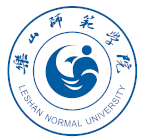Home > Partner network > Sino-French laboratory of Wildlife Management and Ecosystem Health (...)
Sino-French laboratory of Wildlife Management and Ecosystem Health (WiMEH)
March 24 - 2024
中法野生动植物管理与生态系统健康联合实验室
Presentation
 Originally established in 2012 at the University of Finance and Economics in Kunming, Yunnan, the Sino-French laboratory of Wildlife Management and Ecosystem Health (WiMEH lab) has become a research laboratory of the School of Life Science at Leshan Normal University, Sichuan, in 2024. The WiMEH lab conducts research in wildlife ecology and conservation in Yunnan and Sichuan. It focuses on conflicts between wildlife and humans and how these can be avoided, reduced or mitigated. Research is based on field studies and mobilises networks of stakeholders such as forest and nature reserve managers and health professionals. It integrates methods from landscape ecology and molecular genetics within an Ecohealth/One Health framework. The aim is to provide stakeholders with concepts, vulnerability and risk models and scenarios to support decision making and environmental management in the context of global change.
Originally established in 2012 at the University of Finance and Economics in Kunming, Yunnan, the Sino-French laboratory of Wildlife Management and Ecosystem Health (WiMEH lab) has become a research laboratory of the School of Life Science at Leshan Normal University, Sichuan, in 2024. The WiMEH lab conducts research in wildlife ecology and conservation in Yunnan and Sichuan. It focuses on conflicts between wildlife and humans and how these can be avoided, reduced or mitigated. Research is based on field studies and mobilises networks of stakeholders such as forest and nature reserve managers and health professionals. It integrates methods from landscape ecology and molecular genetics within an Ecohealth/One Health framework. The aim is to provide stakeholders with concepts, vulnerability and risk models and scenarios to support decision making and environmental management in the context of global change.
It has evolved in a "beyond the walls" laboratory, drawing on the expertise of a network of several international research laboratories and researchers able to work complementarily on the issues addressed by the WiMEH lab.
We are currently developing programmes on:
- from 2014 onwards, Tibetan macaque and wildlife tourism

We also pay a particular attention to Wild Asian elephant - human conflicts and are in regular contact with the Xishuangbanna national reserve.

- Wild elephants in a coffee plantation, in JiangCheng Hani and Yi Autonomous County, Pu’er prefecture
Field stations
Three of them are located in the Three Parallel Rivers of Yunnan Protected Areas, one of the most biodiverse and least disturbed mountain ecosystems in the world, according to UNESCO, in the uppers of the Nu Jiang - 怒江 (Salween), LanCang Jiang - 澜沧江 (upper Mekong), and JinSha Jiang - 金沙江 (upper YangTse).
| BaiMa XueShan Nature Reserve | ||
| LaoJun Shan Nature Reserve | ||
| GaoLiGong Shan Nature Reserve | ||
| Emei Shan field station of the China Terrestrial Ecosystem Research Center Network (Mont Emei Scenic Area Management Committee) |
Lab members
| name | Title | Position | Fields of expertise |
|---|---|---|---|
| Professor, Dr | Director | Conservation biology and research logistics | |
JIAN Tao - 江滔
 |
Professor, Dr ; vice-president of the LSNU | Administrative director | Waste resource utilization and greenhouse gas emission reduction |
Patrick GIRAUDOUX
 |
Distinguished Professor, Dr | Foreign director | Wildlife ecology, ecohealth/one health, spatial modelling |
Eve AFONSO
 |
Distinguished Professor, Dr | Vice-foreign director | Conservation biology and molecular genetics |
Frédéric GIMBERT
 |
Senior lecturer UMLP | Researcher | Ecotoxicology |
GUO YuRong - 郭玉红
 |
Professor, Dr | Researcher | Field ecology |
Chang Jiali - 常佳丽
 |
Professor, Dr | Researcher | Microbial molecular ecology, gut microbiota, environmental resistome, and ecological damage assessment |
Tang Haixia - 唐海霞
 |
Master | Manager | Data manager, coordination and field work |
Visiting PhD students
PhD students registered in other universities can be co-supervised by professors at their registration institutions and WiMH lab members. They are in permanent contact with WiMEH lab professors and regularly participate to workshops at the WiMEH lab and in the GDRI EHEDE network.
| name | Title | Position | Fields of expertise |
|---|---|---|---|
Qin Fubing - 覃富兵
 |
Doctoral student (Beijing Normal University) | Researcher | Behavioural ecology |
See also GDRI EHEDE Doctorates and masters...
"Beyond the wall" laboratory
WiMEH lab draws on the expertise of researchers able to work complementarily on the issues addressed by the WiMEH lab.
Examples of researchers having co-authored scientific articles or/and participated to training sessions:
|
Cécile CALLOU |
Associate-professor, Dr., at Museum National d’Histoire Naturelle, France. Mammal and lagomorph types curator, archaeozoology |
|
Céline CLAUZEL |
Professor, Dr., at LADYSS, University Paris-Diderot, France. Spatial modelling and graph theory |
|
Nicolas MARILLEAU |
Researcher, Dr., UMR UMMISCO, IRD/UPMC, invited-researcher at FEMTO-ST, France; Multi-agent systems |
Honorary members/academics
| name | Position | Activity field |
|---|---|---|
LI DiQiang - 李迪强
 |
Chief researcher of the Chinese Forestry Science Research Institute, of the Forest Ecological Environment Protection Institute of Nature Reserves | President of the Ministry of Science and three Technology support project sub-projects. He successively presided over the Ministry of Science and Technology of natural science and technology resource platform project, the nature of biological specimens consolidation and sharing of pilot, social welfare project endangered animal protection technology, the National Natural Science Foundation project Przewalski gazelle population dynamics and landscape heterogeneity research, the State Forestry Administration Project nature reserve social economy and ecological value research, nature reserve monitoring technology research, wild animal value assessment research and international cooperation projects in the upper reaches of the Yangtze River forest ecological zone system protection plan and the Northeast Inner Mongolia forest nature reserve planning project. |
LONG YongCheng - 龙勇诚
 |
Chief Scientist at the Alashan Society of Enterprenor Ecology (SEE)’s Southwest China Center, and at The Nature Conservancy | Primate ecology and conservation |
ZHANG Li - 张立
 |
Professor at the Beijing Normal University. Member of the ethics committee of the International Union of Biological Science (IUBS), member of the Chinese national committee of IUBS, general secretary of the Chinese committee of the International Society for Conservation Biology, director and deputy general secretary of the Chinese Animal Society, general secretary of the Alashan SEE foundation | Animal behaviour and conservation biology, Asian elephant population and behavioural ecology,、habitat restoration and conservation genetics, monitoring and enforcement for the wildlife trade |




















